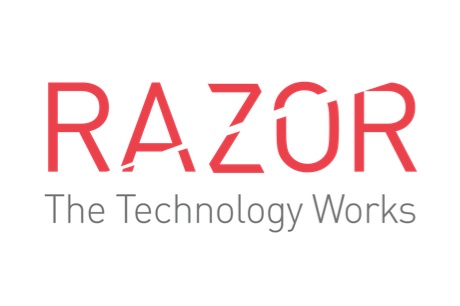Are the robots really coming for my job?

by Harry Worsnop, chief commercial officer of Razor.
The short answer – at least in our lifetime – is most probably not. But what they could do is make you more effective.
Over the last couple of years, there has been increasing media coverage about automation and how robots are going to take our jobs. The BBC have provided a tool to help us assess our individual risk level, and last month an article in the Harvard Business Review lead with the fact that 25% of CEOs’ time is spent on tasks that machines could do.
So what’s the real impact for businesses today?
The truth is that many businesses, and in fact entire industries, are woefully behind when it comes to automation. Look at the businesses that you come into contact with – even your own – and you’ll find simple repetitive tasks that are still carried out over and over again by people. Certain tasks undeniably require a human touch, but there are plenty where the human element creates inefficiency and increases the risk of errors.
How do we fix it?
Gradually. Using software to improve the effectiveness of your business shouldn’t be disruptive, otherwise, you’re fixing one problem to cause another. Start small and look to balance risk against the potential gains. This will improve your chances of getting buy-in from the colleagues who will be most affected by the change. It will also be easier for your shareholders to swallow.
Use specialists to help you through the process. Find a partner whom you trust to be able to guide you down the right path. Sometimes an off-the-shelf solution will work just fine, sometimes you’ll need a piece of software that has been crafted to fit your business, and sometimes you might need a combination of the two. As the old adage goes: “there is more than one way to automate a business process” (or maybe it was something to do with skinning cats, I don’t quite remember). The important thing for you is to be able to make an informed decision as to what you should try first.
Is this a plan to slowly get rid of people?
No. Not unless you believe that your business can stand still and continue to survive. Freeing up people from carrying out repetitive tasks allows them to spend more time on providing human value to your business. Automation allows us to evolve the roles of people within our businesses, to ensure that they’re working effectively. As a software business, we don’t just work on automation for our customers; we’ve also automated a number of our own processes. The deployment of new code is an area where we’ve seen a significant improvement in the efficiency and effectiveness of our team. We require a human to initiate the process and a human to provide final approval at the end, but the time consuming, repetitive tasks in the middle are automated. This allows our team to spend more time doing the very clever things that we’ve employed them to do and less time on mundane tasks.
Imagine if you could free up one person in your business to spend time on innovation, or to spend more time actually talking to your customers?
Automation isn’t simply an opportunity to employ fewer people; it’s an opportunity to get even more value from the people you have.








